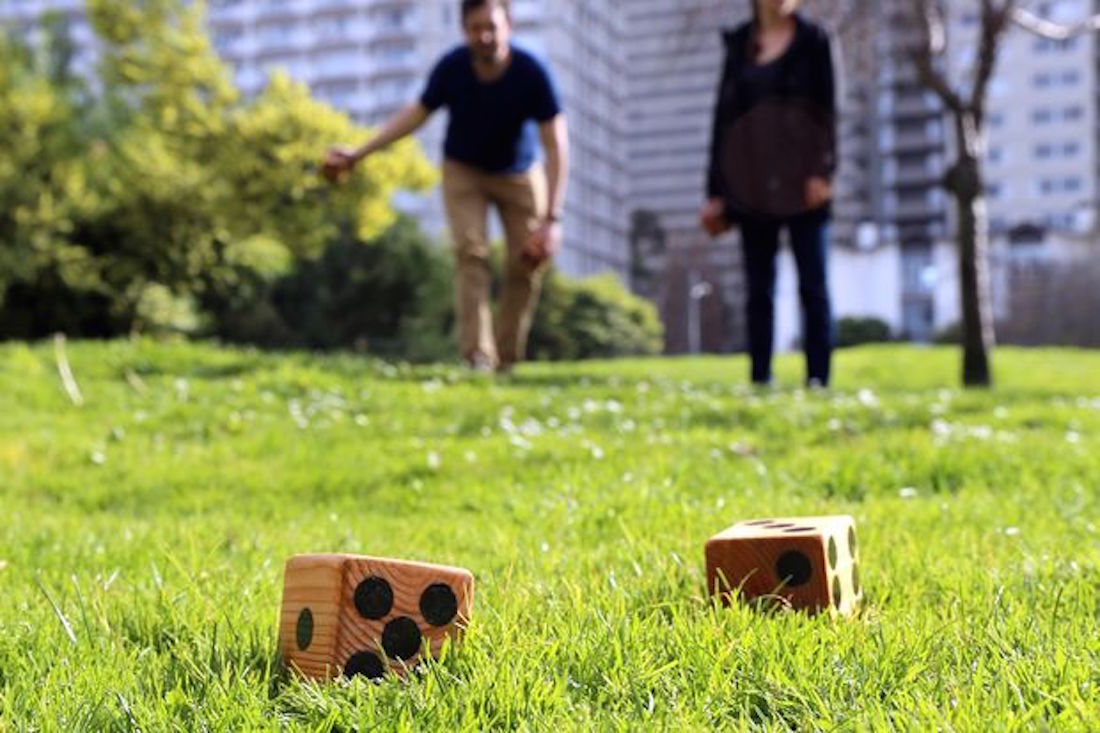Play: Childish Games or Healthy Habit?
All work and no play makes Jack a dull boy. It’s a familiar old saying, but many Americans probably don’t take it very seriously today. After all, everyone has a lot to do. There’s work, Facebook, taking the kids to practice, more work, email, TV, housework, more Facebook, and occasionally sleep. Such a list may seem a little crazy to some, but for many people, it is an all too familiar reality. Playtime is not part of being a responsible adult in this country. Should it be? Are there real health benefits to incorporating play into our lives. First, let’s define what we mean by ‘play.’ We can then discover its many health benefits and finally look at some tips to incorporate playfulness into a daily routine.
Defining ‘Play’
First, let’s define what we mean by ‘play.’ The Oxford dictionary defines play as the act of “engaging in an activity for enjoyment or recreation rather than a serious or practical purpose.” This broad interpretation allows us to include many forms of play including activities such as badminton, hiking, archery, fishing, surfing, skiing, woodworking, or gardening. Less active types of relaxation include board games, card games, word or picture puzzles, or simply enjoying time with family and friends. The important takeaway is that any activity that is healthy, fun and enjoyed for recreation is fair game.
Playtime is great for passing the time, but it has many health benefits as well. We are nourished socially and physically by play and the combination can be powerful.
Social Benefits of Playfulness
- Play encourages us to take chances and keep an open mind. Mental flexibility is a valuable asset in a rapidly changing world and may help us manage stress.
- Recreational activities encourage us to learn and problem solve. Children instinctively use play as a learning tool, and adults can do the same. Having moments where our minds are free of problems allows us to find alternate solutions and problem solve more efficiently.
- Playfulness aids in building personal relationships and increases self-esteem. Research suggests that play has a crucial role in the development of our social skills. Playful adults also demonstrate more creativity and goal setting abilities when compared to non-playful adults.
- Play reduces stress and anxiety. Active engagement, both mentally and physically, allows our minds to take a break from daily concerns and worries that are often at the root of chronic stress.
- Finally, enjoyable activities can allow us to enter a mental state of ‘flow.’ Flow is the trait of unaware consciousness that we experience while engaging in an activity that completely occupies our mind rendering us unaware of time or place. We’ve all had moments where several hours have gone by, and we had no idea because we were so content and absorbed in our activity. Flow can be a healthy state of mind to enter and one that we don’t allow enough time for in our daily lives.
Physical Benefits of Play
- Increased activity can lower blood pressure and increase heart health.
- Movement and general activity improve immune response helping us fight off infection as we get older.
- Cognitive function is increased with all forms of movement. Increasing our activity levels may also be protective of neurodegenerative diseases such as Alzheimer’s.
- Increasing our activity level and lowering stress can also help with weight management.
The above list is a sample of the many health benefits of incorporating play into your life. Enjoying daily acts of playfulness and sport will have the greatest impact on our health. Remember, it’s not helpful to enjoy an hour of cards with friends and then stress over your lost ‘productive’ time. Enjoying life is a prerequisite for health and vitality.
Tips to Incorporate Play
If you struggle to find the time or initiative to incorporate play into your life try some of the following tips. You might just remember how fun it was to be a kid again.
- Do something you enjoy every day. Don’t force it, and don’t make it feel like work. Work is the opposite of play and it will not improve your health.
- If you don’t feel like playing try and recall memories of past playful activities. Do this consistently, and it will help you feel like playing more often. We are often inhibited from playing because our minds are filled with anxiety and worry, but this is precisely why play is so important.
- Watching TV is NOT play. You do not engage your mind or body when you watch TV even though it might be enjoyable. I’m not saying you should never watch TV, just don’t count it as play.
- Be thankful at least three times each day. Being grateful is a powerful practice that can change your outlook on life. It may not seem like play, but it will help you prioritize the positive aspects of your life.
- Include play in your personal spring cleaning or make it part of a ‘new year’s’ resolution.
Above all, remember that our past is built from memories, our future crafted from imagination, and only in the present do we find a place to live. Focus on your moment, here and now, and be thankful for the company of the people that love you. And, of course, enjoy your present time with a good dose of play.

